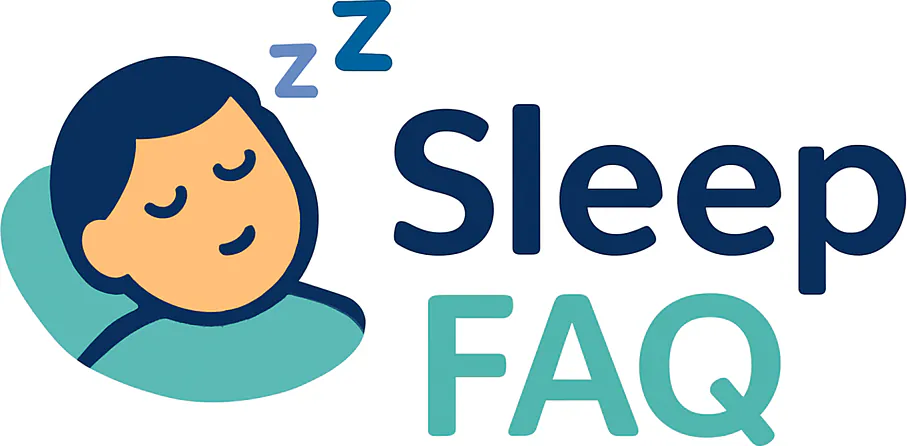How do I deal with a snoring partner?

Snoring can do more than just irritate at night; it can cause significant disruption in relationships and disturb the calm of a shared bedroom environment.
This article explores the multifaceted effects of snoring on couples, from understanding its emotional impact to identifying the underlying causes and offering practical solutions.
It discusses practical strategies and remedies for coping with a snoring partner, emphasizing the importance of communication and compromise.
It points out when it's necessary to seek medical advice, especially if snoring signals more serious health issues like sleep apnea, which may require professional treatment.
Dive in to discover how to navigate this common challenge with effective tips and restore harmony to your nights while ensuring restful sleep.
The Effects of Snoring on Relationships
Snoring can have significant effects on relationships, particularly between partners who share a bed. The noise and disruption caused by snoring often lead to frustration and can diminish the overall quality of sleep for both individuals.
As one partner struggles with the noisy interruptions, the other may experience feelings of irritation and helplessness, which can create tension. Good communication is important to handle these problems and can help people be patient and support each other.
Knowing how snoring affects a relationship is important for keeping it healthy and making sure both people get good sleep.
Understanding the Impact on Partners
A partner's snoring can cause many emotional and relationship problems that need empathy and patience.
When people don't sleep well, they often feel grumpy and less happy. It's important for partners to handle this problem with kindness.
When one partner snores, the other may struggle with feelings of frustration or helplessness, which can strain the relationship over time.
Discussing the sleep environment can help, such as the bed's position, using white noise machines, trying nasal strips or a snoring mouthpiece, or seeing a doctor.
When both partners work together to manage stress, they can build a loving environment that improves sleep and strengthens their emotional bond and relationship.
Causes of Snoring
Knowing why people snore is important for finding ways to stop it and get better sleep. Snoring can result from various factors, including anatomical features, lifestyle choices, and health conditions such as sleep apnea.
In many cases, nasal congestion caused by allergies or colds can exacerbate snoring, while certain sleeping positions may also contribute to the issue.
Changes in daily habits, like losing weight and better sleep practices, can greatly lower how often snoring occurs.
Identifying and Addressing Underlying Factors
Identifying and addressing the underlying factors contributing to snoring is essential for effective management and potential resolution.
To do this, different methods like detailed sleep studies and evaluations by a sleep clinic can be used to monitor breathing patterns during the night.
Talking to a doctor or ENT specialist is just as important because they can provide advice based on your medical history and possible physical check-ups.
Knowing that regular snoring can be linked to illnesses such as sleep apnea is important for health, because untreated sleep apnea can cause serious problems.
Exploring remedies such as lifestyle changes, specialized devices, snoring devices, or surgical options can greatly alleviate symptoms and improve sleep quality, offering hope for those affected.
Ways to Cope with a Snoring Partner
Coping with a snoring partner requires a combination of effective communication strategies, partner support, and practical solutions to create a peaceful sleep environment.
Communication and Compromise
Good communication and finding middle ground are important when living with a snoring partner to build mutual respect and help each other.
It's very important for both people to openly share their feelings and worries about the situation, as this can greatly affect their romantic relationship and intimacy.
By approaching the topic with empathy, couples can create a safe space to discuss their sleep challenges without blame. For instance, one partner might suggest using white noise machines or exploring different sleep arrangements, such as separate blankets, to minimize disturbances.
Finding ways to meet each person's needs can help reduce the stress of sleepless nights and also bring people closer together, showing that love and working together can overcome regular challenges.
Practical Solutions for Better Sleep
Using practical methods and over-the-counter solutions can greatly lessen how snoring affects sleep and improve the quality of rest.
Simple adjustments in daily habits and sleep environments can make a considerable difference. Individuals might find that using earplugs, a sleep mask, or experimenting with pillow height can help create a more tranquil sleeping atmosphere, blocking out disruptive noises and light.
Incorporating special pillows designed to promote better neck alignment can keep airways open and reduce the tendency to snore. Experimenting with sleeping positions, such as lying on one's side instead of the back, can also have a positive effect.
Embracing lifestyle changes, such as maintaining a healthy weight, avoiding alcohol before bedtime, and establishing a regular sleep routine, further contributes to improved sleep hygiene and restful nights. Using relaxation methods and sleeping aids such as a CPAP machine, when needed, can improve sleep quality.
When to Seek Medical Help for Snoring
It's important to know when to get medical advice for snoring, especially if it might be linked to a more serious issue like sleep apnea, which may require diagnostics and follow-ups for proper treatment.

Signs of Sleep Apnea and Other Serious Conditions
Identifying symptoms of sleep apnea and other serious issues linked to snoring is important for keeping your partner healthy and safe.
Loud snoring, which often interrupts sleep, is one of the most common indicators, accompanied by instances of gasping or choking during the night. Those who find themselves excessively drowsy during the day or experience fatigue during waking hours may also unwittingly signal it's time for a closer examination.
People who notice these concerning symptoms should see a doctor right away for a medical evaluation. Getting medical advice quickly can help find the right diagnosis and lead to treatments that improve health and life quality.
Frequently Asked Questions
How do I deal with a snoring partner?
Dealing with a snoring partner can be challenging, but here are some tips and solutions to help you out.
Why does my partner snore?
Snoring is caused by the vibration of relaxed tissues in the throat, usually due to narrowed airways.
What can I do to reduce my partner's snoring?
You can encourage your partner to try sleeping on their side, avoid alcohol before bed, manage allergies, and maintain a healthy weight to reduce snoring. Using nasal strips and changing pillow height can help lower blockage in the airways.
Should I wake up my partner when they snore?
You shouldn't wake up your partner when they snore because it can disturb their sleep and lead to annoyance. Instead, consider using earplugs, white noise, or other methods to block the sound and create a comfortable place to sleep.
How can I get a good night's sleep despite my partner's snoring?
Invest in a good pair of earplugs, use a white noise machine, consider soundproofing techniques, or try sleeping in a separate room if necessary. It's important to prioritize your own sleep for your health and wellbeing.
Is snoring a sign of a serious health issue?
In some cases, snoring can be a symptom of a more serious health issue such as sleep apnea. If you are concerned, encourage your partner to speak with a doctor or dentist for a proper diagnosis and treatment plan, possibly involving snoring devices or CPAP therapy.
